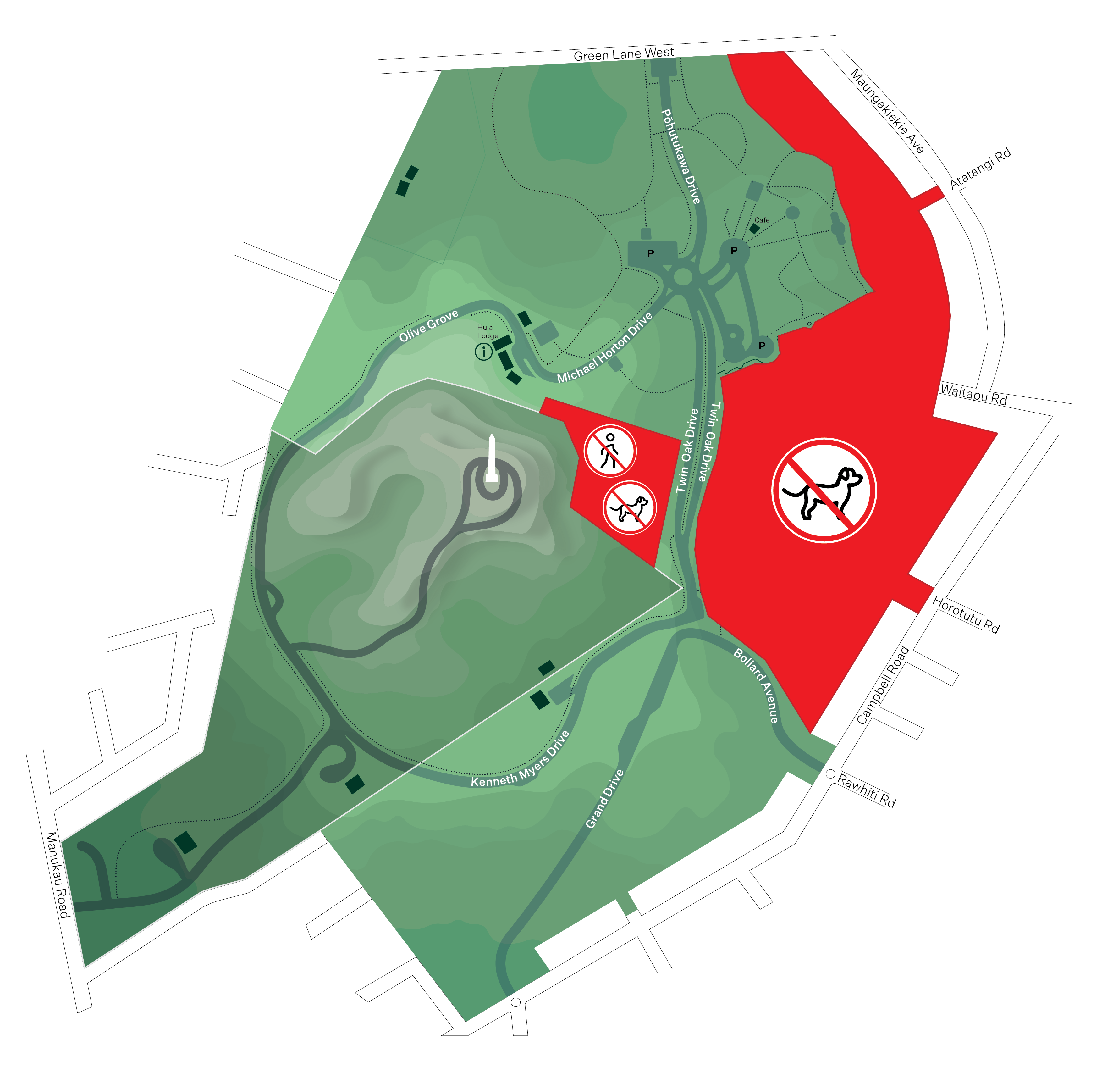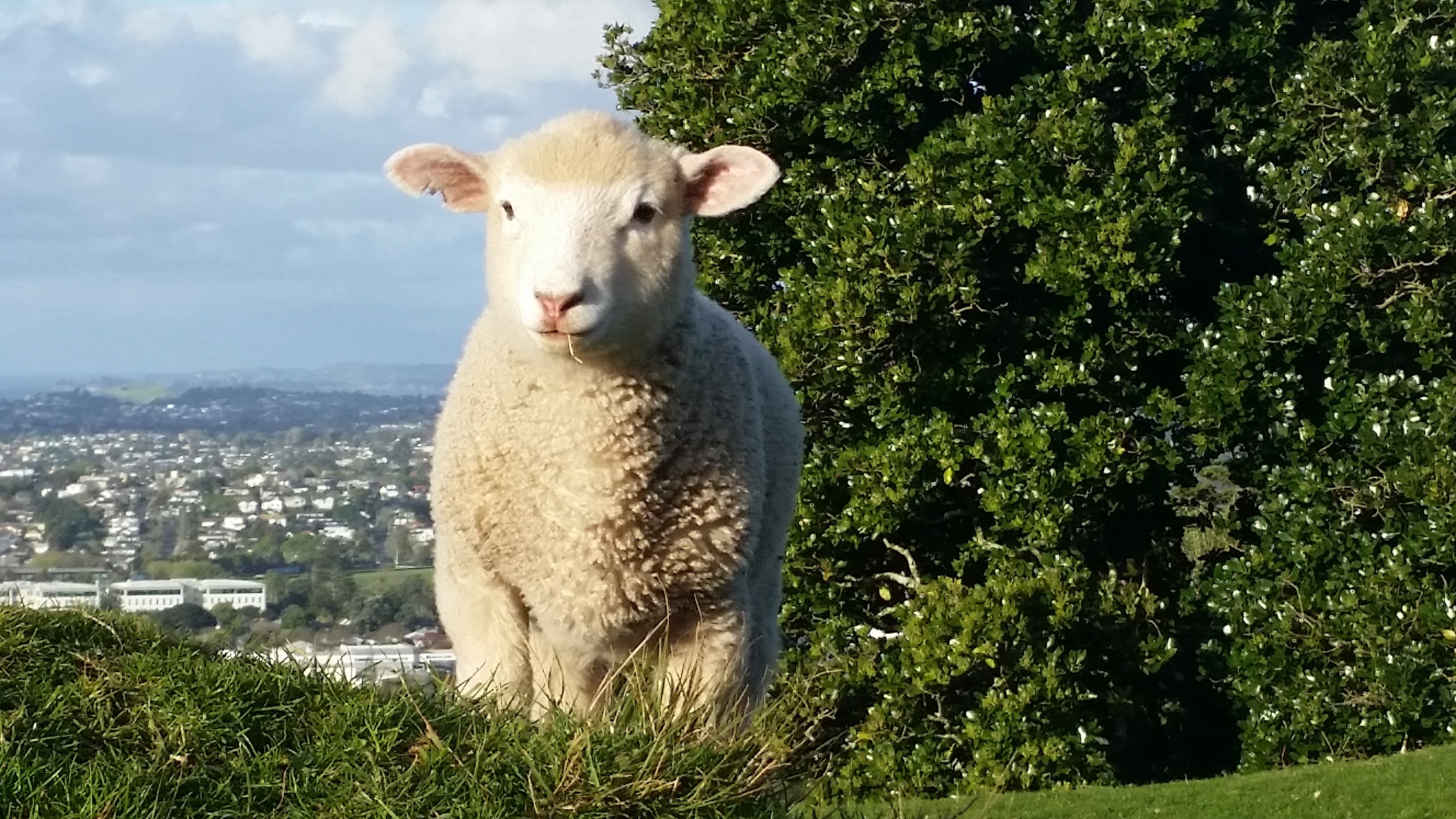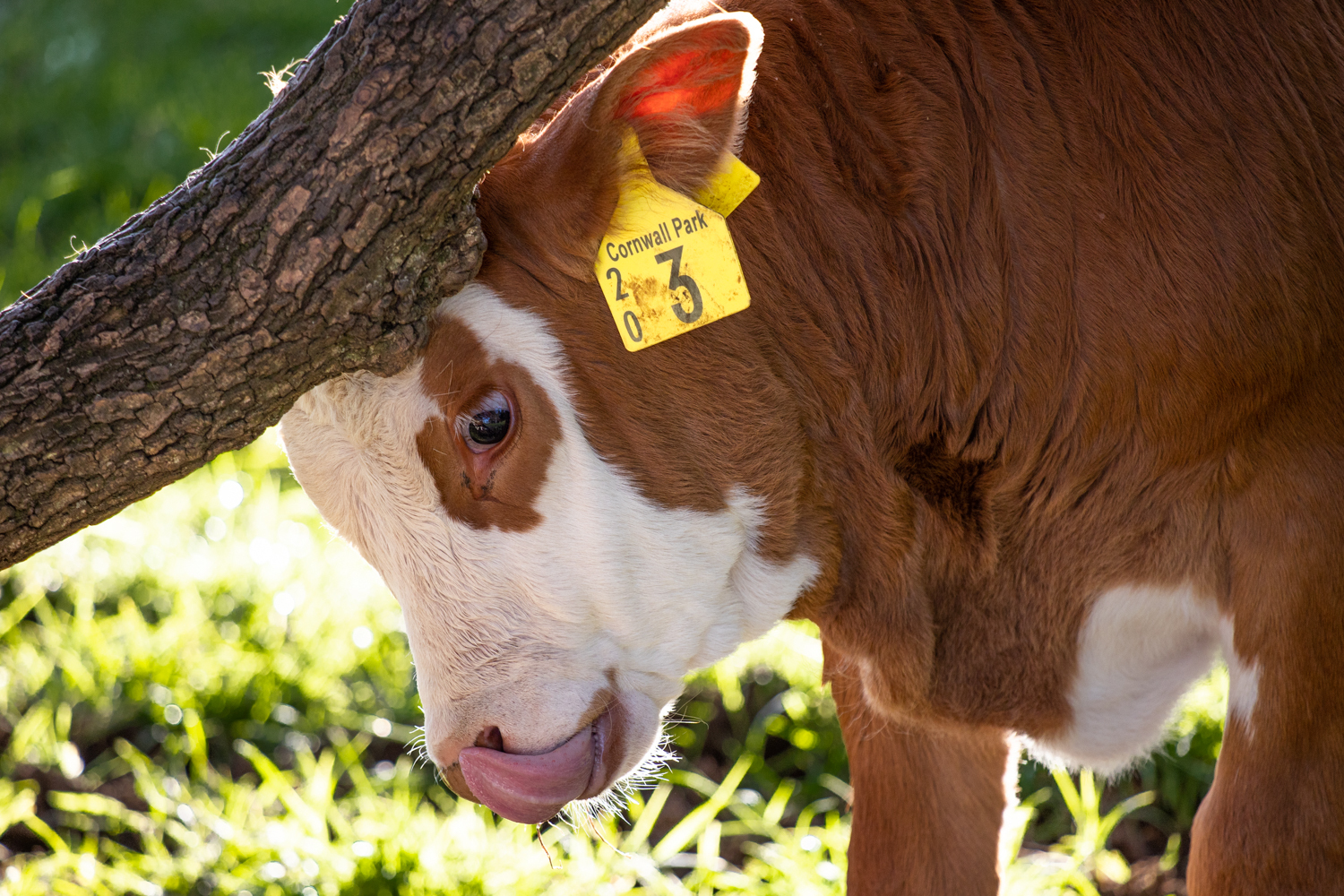lambing and calving at cornwall park

Always a highlight of the year, our calves are born from mid-July to mid-August, while our lambs begin arriving at the start of August through mid-September.
There are plenty of opportunities to see the newborns for yourself while visiting the park, but there are a few rules and restrictions in place during this time. They are set in place to ensure the newborns get the best start in the world possible, with minimal stress and human interaction. We ask that you please read and follow the information and rules below, and familiarise yourself with our park map during this time.
Rules in Cornwall Park during Lambing and Calving
No dogs are allowed in the restricted zones from July 17th to September 10th. Please look for signs when entering paddocks. Dogs are permitted elsewhere in the Park on a lead. See the map below.
All dogs in the park MUST be on a lead at all times.
Do not touch or approach any livestock including lambs and calves.
Do not chase, scare or throw objects at any animals.
If you see a cow or sheep giving birth please keep your distance and do not approach. The animals know what they are doing and can do it without human help. If they need help, our farmers help.
Keep your distance from the animals. Mother cows are protective of their young and will charge if threatened.
Please stay on the red chip paths through designated areas.
Remain calm and quiet around livestock.
All livestock can be unpredictable, especially cows during calving time.
Obey all signage around the Park.
Please remember to close all farm gates behind you when walking through the park to ensure the safety of the animals.

Download our lambing and calving information here
Frequently Asked Questions:
Where can I see newborns in the park?
New lambs and calves are kept in paddocks on the eastern side of the park. Dogs are prohibited in this area between 17 July and 10 September each year. During this time, the safest viewing area for the public is from the Belvedere Steps, just south of the Cornwall Park Café.
Why can't I get close to the animals during this time?
New lambs are particularly vulnerable to people and dogs — sudden noises, human touch, and dogs sniffing around or chasing can result in the lamb going into shock and dying. The mother sheep and her lamb form an instant bond after the birth, and interruptions by people or dogs can result in the mother abandoning the lamb. If this happens, either the lamb will die or, if we get to it in time, will need to be hand-raised, which is not in the best interest of the lamb.
Mother cows have strong maternal instincts and can be aggressive — they will protect their young from perceived threats such as humans and dogs.
We would be grateful for your cooperation during the first few weeks of these newborns’ lives . . . and so will the animals!
What are our farmers doing during lambing and calving?
Our farmers work extra hard during lambing and calving season. They do 3 - 4 rounds per day to all of the expecting and new mothers to check on them and monitor their health. Sometimes bonds are not made between a mother and her offspring, for various reasons, so our farmers need to ‘play mum’ and hand feed them. These lambs are kept close to the farm HQ because they need constant care.
How to help
The best help for our farmers and livestock is to keep your distance and follow the rules above. If you see livestock looking unwell, lambs by themselves for a long time or people touching or chasing the livestock, please call 09 630 8485 and our Huia Lodge team will get the information to the right person to help. Helpful information for us includes, what happened, when it happened and where you are in the park.

About our sheep
Cornwall Park is home to about 300 ewes that give birth to around 350 lambs each year. Our sheep are Texel/Perendale crosses.
During autumn our ewes are fed up to put on weight, which increases their fertility. Each sheep is carefully matched with a ram based on her level of experience – first-time mums are matched with a ram that is known for producing smaller lambs to make for an easier pregnancy and birth, and more experienced mums will go with rams that tend to produce bigger lambs. Other considerations in the pairing include the density of the wool.
Rams are left with the ewes for around six weeks during the mating season, then in May our farmers find out which sheep are pregnant and the number of babies they will have. Each sheep is marked with spray paint to show how many babies, if any, she’s expecting. Most of our sheep, which are pregnant for five months, give birth with no problems, but we keep an extra eye on the ewes expecting twins or triplets. The lambs are weaned off their mother’s milk in January.
Sheep are shorn in May and December – on average, we produce 1400kg of wool (enough to make nearly 2500 jerseys!) per year. The May shearing is timed just before winter so they have time to grow a little wool back before it gets too cold. They eat more when they are cold which is good for the unborn lambs.
Our ewes call Cornwall Park home for about five to six years, before being sold.

About our cows
Our cows are Simmental cattle, a Swiss breed. They are docile but very protective of their calves and known for their sturdy nature, excellent beef and ability to cope with climate changes.
Mating takes place around October and the gestation period of a cow is about 40 weeks.
The calves are weaned off their mother’s milk in March when they are seven or eight months old so that some can be sold. During this time, they make a lot of noise.
Our cattle are either sold to be breeders or for meat, while some stay with us to replace our mother cows – we pick the cream of the crop in terms of looks, temperament, fertility and mothering ability, and year on year they help us to improve our herd.
We have worked hard to breed top-quality cows with good mothering ability and a quiet temperament. As a result, they are in high demand from other farms.